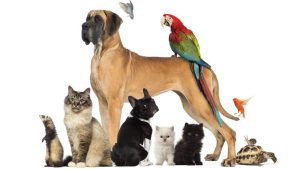19 November, 2016
Q
Assalamualaikum warahmatullahi wabarakatuh. Firstly I would like to give my utmost thanks to the people who run this site because I have asked about three questions so far (this is my fourth) and you never cease to reply in depth and with great detail. Jazakallah khair for your patience and willingness to help. My question this time is regarding animals in Islam. Several times it is mentioned, and it is a well-known fact that, human beings are tested through suffering on earth, in the form of death, loss, hunger, natural disasters, etc. This still doesn't exclude the fact that animals go through the same things, be it diseases, loss, hunger and natural disasters. I know human beings are a superior creation to the animals, but may I know why, if all of those forms of suffering for humans are a means to test their faith, do animals go through the same thing? What does Islam have to say in turn about animals' sufferings? I'm sure they're not just some 'useless creation to be turned to dust' by Allah. Thank you very much.
Answer
Salam Dear Nadiah,
Thank you for your question and for contacting Ask About Islam
We would like first to thank you for your positive feedback and kind words. It is very nice to know that our answers are useful, and of benefit to Muslims in Singapore and elsewhere around the world.
Concerning animals, their suffering may be classified into three main types of suffering.
The first type of suffering is the normal suffering of old age which is followed by death.
One thing to remember is that this life on earth, for both humans and also animals, is not a permanent life; it’s only a temporary transition to the Hereafter.
Human beings who today live the average age of around 70 years or more develop from young babies to mature adults to elderly people. In these different phases, change takes place as they grow older, and eventually at old age health deteriorates and one day they pass away and leave this world.
This same cycle happens to animals, from babies to maturity to old age then death.
Only our Creator, Allah, is Eternal, and to Him we shall all one day return, and this is one of the important beliefs and wisdom that believers appreciate and reflect upon when seeing these different types of change taking place in both humans and animals.
The second type of suffering is for animals that Allah has made permissible for mankind, like cows, chicken, … etc.
There are very clear guidelines in Islam to minimize the suffering of animals at the time of slaughter, and as this is the purpose of their existence, to serve mankind, when slaughtered in the right way their suffering is minimum, a matter of few seconds.
The same applies for certain types of animals which the Creator has made in His design to be a source of nutrition to other animals. A small fish for example which is swallowed by a big fish in the ocean was designed to be a source of food for the bigger fish, and once it dies it does not feel any pain.
A third type of suffering for animals is one which is neither the normal suffering of old age, nor the natural suffering of being a source of nutrition for mankind or bigger animals, and that is the unjust suffering of aggression.
This type of unjust suffering will be settled by God among animals in the Hereafter. In some hadiths it is stated that the hornless ram for example will retaliate for the harm caused to her by the horned one.
This indicates absolute justice will prevail in the Hereafter to the extent that it will include some sort of oppression or aggression taking place among animals.

As regards Allah’s Mercy, we can see it everywhere. It is from His mercy that a cat takes care of its small kittens, feeds them and protects them from harm.
Allah created mercy in a hundred parts and kept with Him ninety-nine parts but revealed only one part in the earth. It is from that part that people show mercy to one another and that a she-horse takes its hoof away from its offspring lest it harms it.
I hope this helps answer your question.
Salam and please keep in touch.